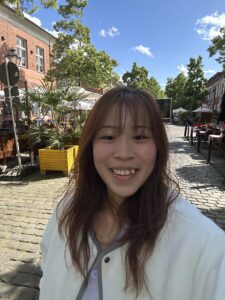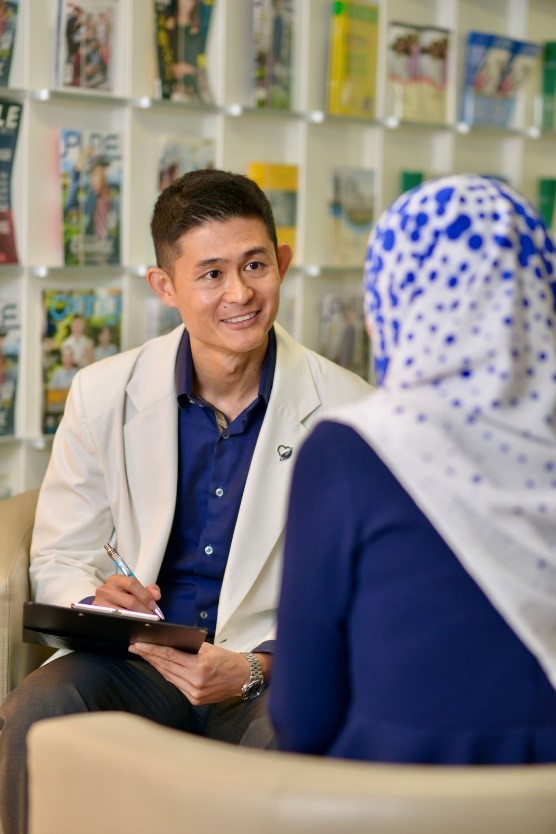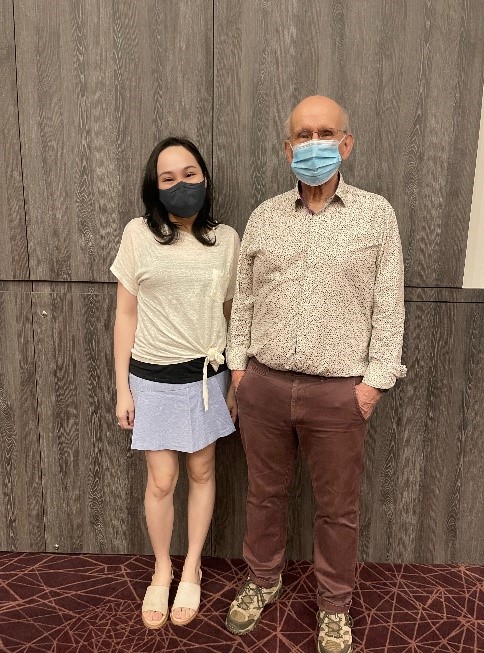The Programme
1. Direct Admission Route
Local and international applicants may apply for direct admission into the MSW programme. Students are required to complete a total of 40 units with a minimum grade point average (GPA) of at least 3.0 to be awarded the degree.

Local students who are Singapore Citizen or Permanent Residents will be entitled to SSG funding subjected to eligibility, for SSG-funded elective courses.
2. Stackable Route:
For local applicants (Singapore Citizens/Permanent Residents) only
Local applicants may pursue standalone elective courses and have the units accumulated from the courses to meet the programme requirements to attain the MSW qualification. They will complete any 1 or more elective courses before applying to be a student for the MSW programme. Upon admission, the student will complete the remaining elective and core courses and capstone to be awarded the degree. Students are required to complete a total of 40 units with a minimum grade point average (GPA) of at least 3.0 to be awarded the degree.

Local students who are Singapore Citizens or Permanent Residents will be entitled to SSG funding subjected to eligibility, for SSG-funded elective courses.
For the elective courses to stack into the programme,
- The stackable courses must not have been used toward the award of another degree programme.
- Each course to be transferred must be read and completed within the last 4 years prior to admission.
- The average Grade Point Average (GPA) of all stackable courses which have not been used towards a degree and are allowed for grade and credit transfer to a MSW programme must be at least 3.0.
| For students with a Bachelor of Social Work | For students with a Graduate Diploma in Social Work | For students without a Graduate Diploma in Social Work or a Bachelor in Social Work |
|
2 capstone courses:
|
2 capstone courses:
|
2 capstone courses:
|
|
3 core courses:
|
3 core courses:
|
3 core courses:
|
|
5 elective courses, with at least one elective course from the following basket:
|
5 elective courses, with at least one elective course from the following basket:
|
5 elective courses, with at least one elective course from the following basket:
|
| For students with a Bachelor of Social Work | For students with a Graduate Diploma in Social Work | For students without a Graduate Diploma in Social Work or a Bachelor in Social Work |
|
2 capstone courses:
|
2 capstone courses:
|
2 capstone courses:
|
|
3 core courses:
|
3 core courses:
|
3 core courses:
|
|
5 elective courses |
5 elective courses |
5 elective courses |
Out of the 10 courses, you must take at least one course from each of the following baskets.
- Policy & Legislation
- Leadership
- Direct Practice
- Research & Evaluation
Students typically take 2 to 2.5 years to complete the programme. The maximum programme candidature is 3 years for full-time students and 4 years for part-time students.
Sample study plans for full-time and part-time students can be found here.
Admissions
Admission Requirements
Applicants seeking admission to the course leading to the Master of Social Work degree must have obtained either:
- An NUS Honours degree (Honours (Merit) and above) or equivalent (e.g., a four-year Bachelor’s degree with at least an average grade of B) in Social Work; good Graduate Record Examination (GRE) General Test scores (the University Code is 0677), taken no earlier than 5 years before the date of application (NUS/NTU/SMU/SUTD graduates are not required to submit the GRE score); or
- An NUS Honours degree (Honours (Merit) and above) or equivalent (e.g., a four-year Bachelor’s degree with at least an average grade of B) in related field; good Graduate Record Examination (GRE) General Test scores (the University Code is 0677), taken no earlier than 5 years before the date of application (NUS/NTU/SMU/SUTD graduates are not required to submit the GRE score); and a minimum of five years of relevant work experience in the human service sector; or
- A good Bachelor’s degree (at least an average grade of B or equivalent) and a NUS Graduate Diploma in Social Work with at least an average grade of B+; or
- A good Bachelor’s degree (at least an average grade of B or equivalent) in Social Work; good Graduate Record Examination (GRE) General Test scores (the University Code is 0677), taken no earlier than 5 years before the date of application (NUS/NTU/SMU/SUTD graduates are not required to submit the GRE score); and a minimum of two years of relevant work experience in the human service sector; or
- Bachelor’s degree (at least an average grade of B or equivalent) in related field; good Graduate Record Examination (GRE) General Test scores taken no earlier than 5 years before the date of application (NUS/NTU/SMU/SUTD graduates are not required to submit the GRE score); and a minimum of five years of relevant work experience in the human service sector or exceptionally;
- Other qualifications and experience subject to approval by the Board of Graduate Studies. Besides academic qualifications, high standards of work performance and leadership potential are important factors of consideration for admission. Relevant work experience includes service in a human service or related organization.
Admission Requirements for Standalone Electives
Admission requirements for applicants taking the elective courses without applying to be a matriculated student of the MSW programme:
- Bachelor’s degree in any discipline; and
- A minimum of 3 years of working experience as a Social Service Practitioner
GRE Scores
The Graduate Record Examination (GRE) General Test report is optional.
However, do note that submitting a strong GRE score can strengthen your application. The GRE scores are reportable for five years and score reports are valid only if our University receives them directly from Educational Testing Service. The University Code is 0677. For more information on the GRE General Test and to register for the test, please visit http://www.ets.org/gre.
English Language Proficiency
Applicants whose native tongue or medium of university instruction is not English should submit their TOEFL (Test of English as a Foreign Language) or IELTS (International English Language Testing System) score as evidence of their proficiency in the English language.
| Minimum Score Required | |
| TOEFL | IELTS (Academic) |
| 580 for the paper-based test | 6.5 |
| 237 for the computer-based test | |
| 85 for the internet-based test (with a minimum score of 22 for the writing section) | |
TOEFL or IELTS results are only valid for two years after the test and the validity should not expire before the beginning of the application period for the coursework programme. The Faculty's TOEFL institution code is 9081.
The Educational Testing Service (ETS) has indicated that score reports are valid only if our University receives them directly from ETS.
General Information
Please refer to https://fass.nus.edu.sg/prospective-students/graduate/coursework-programmes/application-process-gradcoursework/ for general information on the application periods, application materials, fees and etc.
There is one intake (in August) for the Direct Admission Route and two intakes (in August and January) for Stackable Admission Route into the MSW programme.
There are two admission intakes in an academic year for students applying elective courses only.
|
Application Period
Semester 1 (August intake): Application information can be found here.
For Semester 1 (August intake): For Semester 2 (January intake): Application information can be found here.
(Candidates who are considering for the stackable admission route) For Semester 1 (August intake): May For Semester 2 (January intake): October Application information can be found here. |
|
Application Outcome The outcome of application for the Direct and Stackable Admission Route will be made known by 31 May for semester 1 intake or 30 November for semester 2 intake. The outcome for elective application will be notified in early July (for semester 1 intake) or December (for semester 2 intake). |
Fees and Scholarships
Application Fee
Application for each coursework programme must be accompanied by an application fee of S$54.50 (inclusive of GST). The application fee is not refundable.
Tuition Fee
- Successful candidates offered the programme will need to make a one-time payment of $5,450.00 (inclusive of GST) upon acceptance into the programme. The acceptance fee is non-refundable.
- Please click here for the tuition fee structure for international students.
- Please click here for the tuition fee structure for local students (Singapore Citizens and Permanent Residents).
Miscellaneous Student Fee
This is compulsory and payable every semester, for which information can be found on the NUS Registrar’s office website.
For scholarships that are relevant for the Master of Social Work, please refer to the following for more information on the criteria, application procedures, application periods etc.
Admin
| Position | Name | |
| Master & PhD (Research) Coordinator | Assoc Prof Srinivasan Chokkanathan | swksrini@nus.edu.sg |
| Master (Coursework) Coordinator | Prof Irene Ng | swknyhi@nus.edu.sg |
| Graduate Diploma Coordinator | Prof Irene Ng | swknyhi@nus.edu.sg |
| Field Placement Director | Assoc Prof Peace Wong | swkwyj@nus.edu.sg |
| Graduate Field Placement Coordinator | Ms Sophie Cheng | sophie.cheng@nus.edu.sg |
Examination Matters
- No notices
Student Project/ Research
- Research Ethics Guidelines
- Claim for Student Research Projects
- 1. Guidelines on Student Project Fund
- 2. For reimbursement of claims, students are to complete and submit the following forms (hard and soft copies) to the respective administrator at the Department General Office at AS3 Level 4 for payment processing.
- i) Request for Payment Form (the fields that need to be filled up are highlighted in YELLOW)
- ii) Student Project Expense Claim Form
Other Matters
Testimonials
 The NUS Master of Social Work programme offered rigorous training in critical thinking, analytical, and advocacy skills. Among the many enriching courses, I especially enjoyed Poverty and Asset Building with Prof. Irene Ng, Theory and Practice of Social Work Supervision with Yoges and Kumar, and Management of Human Social Services with Prof. Corinne Ghoh. Every professor brought in sector leaders, creating ample opportunities to learn from their varied experiences and to be challenged in our thinking. We were encouraged to examine literature and practices from within the region and beyond, and to engage in discussions that honed our ability to strengthen arguments, challenge viewpoints, and build compelling cases. The Poverty and Asset Building course, in particular, pushed me beyond my comfort zone to explore how macro-level and economic perspectives intersect with social work, and I grew significantly as a result.
The NUS Master of Social Work programme offered rigorous training in critical thinking, analytical, and advocacy skills. Among the many enriching courses, I especially enjoyed Poverty and Asset Building with Prof. Irene Ng, Theory and Practice of Social Work Supervision with Yoges and Kumar, and Management of Human Social Services with Prof. Corinne Ghoh. Every professor brought in sector leaders, creating ample opportunities to learn from their varied experiences and to be challenged in our thinking. We were encouraged to examine literature and practices from within the region and beyond, and to engage in discussions that honed our ability to strengthen arguments, challenge viewpoints, and build compelling cases. The Poverty and Asset Building course, in particular, pushed me beyond my comfort zone to explore how macro-level and economic perspectives intersect with social work, and I grew significantly as a result.
Another highlight was the Capstone Research Project with Prof. Lee Geok Ling and Prof. Gerard Chung, which allowed me to pursue a topic I was passionate about: the role transition process from social worker to managerial role. This experience fostered significant professional growth and confidence, giving me the opportunity to present my findings to my organisation’s senior leadership, curate a group coaching programme to support the development of new supervisors and managers in my centre, and present the subsequent research findings at our organisation's symposium.
I am immensely thankful for the networks formed, the continued mentorship and support received, and the opportunities to participate in nationwide symposiums and conferences that broadened my perspective on social work practice. This programme has deeply shaped my development as a social work professional and continues to inspire my commitment to the field. I wholeheartedly recommend NUS Master of Social Work programme to anyone seeking to advance their career and deepen their impact in the field of social work.
Ms Choong Ying
Assistant Senior Social Worker,
Allkin FSC @ Cheng San 445,
Master of Social Work graduate, Class of 2025
 The capstone courses allowed me to experience first-hand using practice research methodologies to guide my practice, which contributed to better patient care at the hospital where I work as a Medical Social Worker.
The capstone courses allowed me to experience first-hand using practice research methodologies to guide my practice, which contributed to better patient care at the hospital where I work as a Medical Social Worker.
I especially enjoyed the space given for experimentation, and receiving peer feedback and support from my instructors’ throughout the learning exposed me to different perspectives and ideas. The knowledge and skills learnt allowed me to continue conducting my own practice research back at the hospital where I work and contribute back to evidence-based practice.
Mr Adrian Tan
Medical Social Worker
 Embarking on the practice research is one of the most impactful and challenging journey that helped me reflect on the epistemologies of knowledge in a critical manner. As a moral, ethical and social endeavor, the reflexive process of practice research surfaces multiple complex issues which provokes the thinking and doing of my work professionally and personally. It is also an important contribution to the advancement of social work knowledge, understanding and context which we live in.
Embarking on the practice research is one of the most impactful and challenging journey that helped me reflect on the epistemologies of knowledge in a critical manner. As a moral, ethical and social endeavor, the reflexive process of practice research surfaces multiple complex issues which provokes the thinking and doing of my work professionally and personally. It is also an important contribution to the advancement of social work knowledge, understanding and context which we live in.
My research on kick-starting the journey of exiting the poverty cycle with low-income families and social workers reinforced an ecological lens for holistic practice. Practice recommendations include building families’ problem-solving capacities by enhancing their self-reliance and self-motivation efforts, shifting from a problem-centred perspective to a strengths-based perspective, reducing bandwidth tax and advocating for structural changes. A recursive process of helping families meet basic and long-term needs was recommended. Arising from the research, practice and policy recommendations were generated which may help low-income families more effectively.
Overall, it has been a fruitful adventure of learning which I strongly encourage anyone in the helping profession to venture into. This lifelong learning journey never ends as even after the research is completed, I continue to have reflections on the concepts and theories which are relevant to and for my work as a counsellor and social worker. Beyond thinking about what constitutes as practice research, it is vital to contemplate “what might make social work research distinctively good?” as Professor Ian Shaw encouraged us to consider about. I am immensely humbled and grateful to my mentors in this journey – Professor Choo Hyekyung, Professor Lee Geok Ling and Professor Ian Shaw.
Ms Yvonne Ang (with Prof Ian Shaw in photo)
Senior Counsellor, Manager
National Council of Social Services, Sun Ray Scheme
I have found the capstone courses a core and important set of courses for post-graduate students who want to deepen their understanding of social work practice. My experience of doing research on my current social work practices in the field has been intriguing and enriching. Through the skills and knowledge gathered from the courses, I was able to evaluate the effectiveness and usefulness of the work I did with my clients. For me, learning and establishing evidence-based practice is aligned to the essence of social work services delivery — ensuring that our practice is truly benefiting our clients and not causing harm. I appreciated learning the various research techniques and the strong emphasis for us to keep to the fidelity of the proposed methodology as well as the ethical process.
Every learning step while journeying through the courses was well supported by our trainer, A/P Choo Hyekyung. I feel that the teaching and learning were well-paced and we were equipped with the necessary skills to carry out our practice research in our work setting. It was challenging at the beginning for a practitioner like me to start working on a research piece. However, I am amazed at how much knowledge and insight I have gained through my learning experiences as I completed the modules and applied the research skills in my work.
Mr Mohamad Firoz Bin Abdul Kadir
Master of Social Work student

